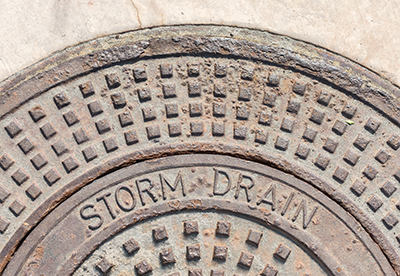
Spring is here, and so are the rain showers and thunderstorms. Stormwater runoff is a major cause of flooding, as well as pollution of rivers, lakes and streams. That’s why, if you own a business in Massachusetts, it’s important that you are familiar with the state laws governing stormwater maintenance.
First, you must have a long-term plan for stormwater management on your property, no matter what your business. This involves routine inspections done by licensed professional contractors like the ones at VacTone Environmental. This also includes a plan to control the impact of any construction on erosion, loosening of sediment and other sources of pollution during the time that your land is going to be disturbed.
Your stormwater management system needs to be designed to remove 80 percent of the average yearly load of Total Suspended Solids (TSS) after construction.
There are required measurements for roof runoff, as well as drainage pipe placement underground. That’s why it’s important to contact professionals contractors who know and follow these guidelines.
Did You Know. . .
The Environmental Protection Agency (EPA) recommends that you not leave standing water from stormwater runoff longer than 72 hours to reduce the amount of mosquitos that may breed. These areas of water must be drained, which is known as a “dewatering rule.”
There are also standards regarding proximity to roads, highways and bridges, or if you’re doing some type of road construction. These standards are necessary because your options are limited when it comes to water runoff if you’re working on or near roads.
Pollution Prevention
You must have a long-term pollution prevention plan, which includes following the proper procedures for maintaining your property, washing your company vehicles, and storing waste products, such as pet waste and other materials, safely inside or in some enclosed space. You need to develop a plan for preventing hazardous spills, and maintaining your landscape, which includes lawns and gardens. Speaking of landscapes, you should always practice safe storage of fertilizers, pesticides and herbicides. You don’t want these chemicals getting into your drainage system or polluting ground water.
Industries that have the highest pollutant-causing potential are oil and gas, industrial, transportation, electric plants, recycling facilities, mineral, metal and other sites that have potentially hazardous materials to be disposed of.
Choose Your Contractor Wisely
Unfortunately, there are some contractors out there who still dispose of waste illegally, who take shortcuts over safety. When in doubt, look up the regulations put forth by the Massachusetts Department of Environmental Protection (MassDEP).
A Note about Water Pollution
The federal Safe Drinking Water Act and the Massachusetts Drinking Water Regulations are enforced for all public water systems in the state. These include reservoirs, public wells and rivers. These regulations help to ensure clean drinking water for everyone, and are inspected regularly for contaminants. As an environmentally-conscious business owner, you can do your part to help keep the drinking water in Massachusetts safe and clean by effectively managing stormwater runoff and any waste that your business generates. At VacTone Environmental, we can help you do that.
At VacTone Environmental, we follow all of the applicable state and federal rules and regulations. So when you contact us, you’ll know you are covered.
Visit our website to learn more about the services we provide at VacTone Environmental.
VacTone Environmental Services is your New England connection—serving Massachusetts, southern New Hampshire, Vermont, Maine and northern to central Connecticut and Rhode Island.
